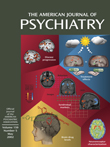Hooked: Five Addicts Challenge Our Misguided Drug Rehab System
This is the first time in many years of reviewing for the Journal that I have had the pleasure of reading a work that I simply could not put down. The comments on the back jacket by professionals, well-known personalities, and book reviewers use phrases such as “intelligence, compassion, brilliance,” “crucially important,” “a terrific read,” and “brings home the reality of addicts’ lives.” It is all of these things and more. Dr. Shavelson, an emergency room physician, photojournalist, and author, would have produced a wonderful and compelling volume had he only described the lives of his five addicts over the 2.5-year period covered in this book. In addition, however, he has done his research on addiction, funding, and outcomes. This research is woven into the narrative with ease, and he is able to make his case relative to the dysfunction of the drug rehabilitation system in San Francisco and throughout the United States. Dr. Shavelson single-handedly does for substance abuse and dual diagnosis what the Institute of Medicine did to highlight inadequacies in the general delivery of health care in this country.
Dr. Shavelson is a wonderful, compassionate observer who clearly was present but, with one small exception, did not interfere in the life events of his subjects as they unfolded. If his presence created a Hawthorne effect, it had to be negligible. This latter shows his great sensitivity, both as a journalist and as a physician.
Dr. Shavelson meets the subjects of this book, his people, at a walk-in intake clinic shortly after San Francisco began a program of open placement for all addicts. He notes that the number of addicts in the United States has dropped significantly in the last decade, but the use by the remaining addicts has escalated dramatically. The five individuals who form the substance of this book illustrate some of the most severely addicted people in the user community. They have great pain and pose great challenges to those who engage them in treatment.
Dr. Shavelson follows his people through a series of encounters with the rehabilitation system. He recounts both their successes, great and small, and their relapses, also great and small. He is insightful and incisive in his description of the rehabilitation system. His final chapter is titled, “Afterward: Does Treatment Work?” The first paragraph of that chapter reads, “When I began this book, the question ‘Does treatment work?’ formed the tiniest seed of inquiry. It soon blossomed into a prickly rose. The closer I moved to smell the flower of rehab, the more sharply I felt the thorns.”
Every single medical mental health and addiction professional, as well as funders, bureaucrats, and decision-makers, should make this book required reading. These individuals should listen to Dr. Shavelson’s suggestions and work toward making them a reality. I know I will!



